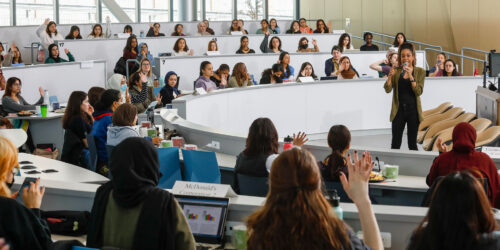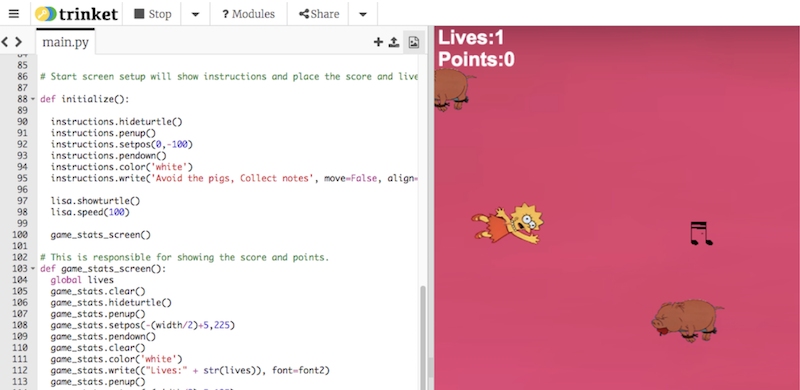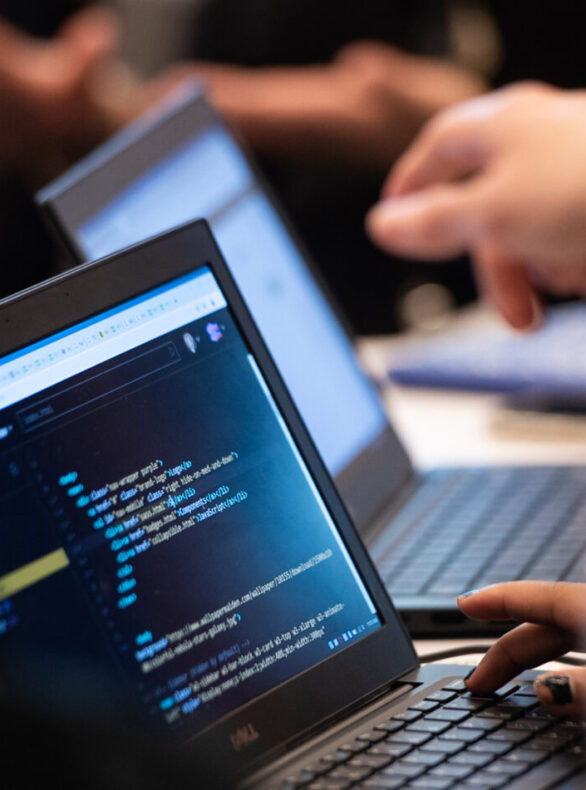CS 111

- About CS 111
- If you’ve decided to study tech, CS 111 will lay the groundwork for the academic experiences that lie ahead.
- Duration
- 8 weeks
- Program Participants
Break Through Tech Chicago helps UIC students who plan to major or minor in data science, computer science, CS + design, or computer science and linguistics to get their start in CS 111. Each year, we accept applications for our tuition-free summer section of this course. We are looking for students who:
- Have a cumulative GPA of 2.0+ from their most recent academic program
- Have a subject-specific GPA of 2.5+ from any math, science, and/or engineering courses
- Have been involved in STEM-focused student organizations
- Additional Info
This might be your first-ever experience with a tech-oriented class, and you’ll find that almost all of your classmates are in the same situation. CS 111 includes lots of group work, because we believe that new tech skills are best learned together!
Just one course can set you on your way.
It’s called CS 111.
CS 111 is an introductory computer science course at UIC that is designed for complete beginners. No prior experience is required. By the time you complete the course — with the help of supportive instructors and classmates — you will have learned how to code! And you’ll be able to use that skill to do fascinating things, from generating artwork to powering devices to communicating your ideas.
You’ll also have the foundation you need to take higher-level courses in data science and computer science.
What you learn in CS 111
CS 111 introduces you to Python, one of the languages that people use to tell computers what to do.
This course is hands-on and designed to be fun, so once you have some basics of Python, you will use this computer language to be creative: producing graphics, simple computer games, visually appealing charts, and even animations. In each assignment, you will practice key skills while making something unique that you can show to your friends and family.
Here’s an example:

This is an actual basic computer game created by a CS 111 student! On the left, you can see the code she learned to write in CS 111. The real-time display of her Simpsons game, enabled by that code, is on the right.
Hear from former students
What’s it like to take CS 111? What are some of the advantages? Will you be supported if you are completely new to data science or computer science? Get perspective on these questions and more from Nandini, Ciara, Sibleen, Diya, and Drishika.
Facts about CS 111
- CS 111 has “computer science” in the title, but it’s equally relevant for students who plan to pursue well-paying careers in data science! (Have you taken a moment to consider data science as an option yet? If not, this page we created sums up the advantages in 3 minutes or less.)
- The Break Through Tech section of CS 111 is tuition free and open by application via Break Through Tech Chicago. Our mission is to help women and nonbinary students to launch rewarding, well-paying careers in tech. A great experience in CS 111 is the first step on that journey.
- Your teacher will be Clinical Associate Professor Shanon Reckinger, a favorite computer science faculty member at UIC and a true advocate for women and nonbinary students in tech subjects.
- The class runs for 8 weeks and meets 3 times per week. In most weeks, two classes are in person on UIC’s campus, and one class is live online.
- The special section run by Break Through Tech Chicago is open to current UIC students as well as incoming UIC students who have submitted their intent to enroll at UIC for the fall semester after the course takes place.
- Break Through Tech Chicago’s summer section of CS 111 is not the only way to take this course! UIC’s computer science department also offers regular sections of this class in the fall, spring, and summer semesters. Visit the computer science department website for more information.
Application process
Break Through Tech Chicago opens applications for the tuition-free section of CS 111 several months before the start of each summer term. The link for the summer 2025 section will be posted here when the time comes. In the meanwhile, if you have any questions about the program, please email Melissa Hernandez.
School-Specific Program Information

By the end of the semester, students will have had exposure to many examples of problem-solving and have had lots of practice applying programming tools to a variety of challenges.

